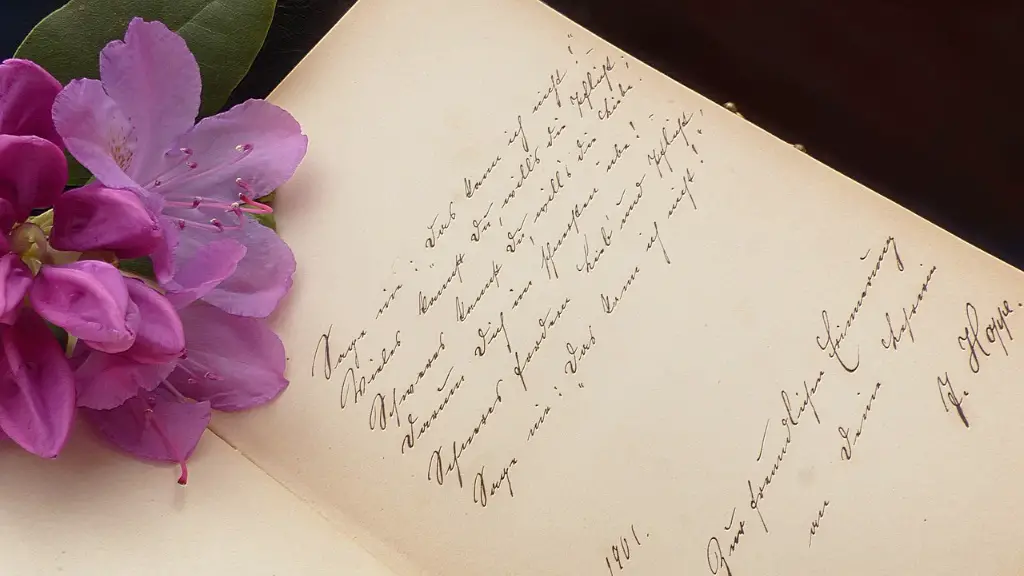Oscar Wilde, the renowned Irish playwright, fell from grace and ended up serving two years of hard labor in prison in the late 1800s. His crime? Gross indecency, or homosexuality. Despite being a well-respected and highly thought of member of London society, his homosexuality was enough to tear him down and lead to his imprisonment.
At the time, a law known as Section 11 of the Criminal Law Amendment Act of 1885 stated that “any male person who, in public or private, commits, or is a party to the commission of, or procures or attempts to procure the commission by any male person of, any act of gross indecency with another male person, shall be guilty of a misdemeanour…”. This law aimed to clamp down on the burgeoning homosexual rights movement that was ideologically incompatible with the mores of Victorian England.
Wilde became the unwitting face of a nation-wide movement to criminalize homosexuality in the late 19th century, and it’s a tragedy that his experimentation with same-sex relationships ultimately had him thrown into jail. He was an easy target for the prosecution due to his fame, which made it effortless for the public to vilify him. It didn’t help matters that he failed to win the court case which led to his conviction and incarceration for two years.
Not only did Wilde lose his freedom, but his work also suffered as a result of his arrest. Between 1875 and 1895 he produced eleven books, nine plays and numerous poems, essays and newspaper articles, but this all stopped when he went to jail. It’s no surprise that his health took a turn for the worse during his incarceration, due to the inadequate and often inhumane prison conditions.
When Wilde was released from prison in 1897 he was a broken man. Without money or any means of survival, he went immediately into exile in France with no intention of ever returning to England.
The Trials of Oscar Wilde
Wilde’s downfall began with a series of legal trials arguing his case against the Marquess of Queensberry, who accused him of “posing as a somdomite” (sic). Queensberry’s son, Lord Alfred Douglas, had begun an affair with Wilde and the Marquess was intent on discrediting and damaging Wilde’s public image in order to end the relationship.
The first trial was a libel case that Wilde filed against Queensberry, which ended in Wilde’s defeat. Queensberry had won the case due to incriminating evidence found in some of Wilde’s love letters to Douglas, namely, references to homosexual relationships in London. This led to Wilde’s arrest in April 1895, where he was charged with gross indecency by London magistrate Sir Albert Eason.
The trial revealed plenty of damning evidence which suggested Wilde had, in fact, engaged in numerous sexual relationships with other men, precisely why he was charged with gross indecency and sentenced to prison.
As news of Wilde’s conviction and sentence spread, it had a devastating impact on his reputation, career and personal life. His plays and novels which had once been sold out at theatres and bookstores now, stopped selling, and his works all but disappeared from the public eye. Consequently, both he and his books were seen as taboo, which only further added to the public’s perception of him as a criminal.
Despite being a successful writer and a famously talented playwright, Wilde’s legacy was quickly tarnished by this conviction. He was no longer seen as a witty and wise literary genius, but as a convicted felon who committed “unspeakable crimes” in Victorian England.
Oscar Wilde’s Imprisonment
Almost immediately after his conviction, Wilde was sent to the notorious ReadingGaol where he spent two years in prison. He was treated harshly and was made to work long hours in appalling conditions. His time in prison both strained his health and impoverished him, and it was clear that his physical and mental health had taken a great toll. Upon his release in 1897, Wilde was a broken and reportedly desperate man.
Wilde’s imprisonment made him the poster boy of a nation-wide movement to criminalize homosexuality, an act that was seen as an abomination by a population that remained largely bound to the strict mores of Victorian England. He was believed to have committed a great sin and deserved the harshest punishment possible – though his sentence was reduced from hard labor to two-year imprisonment. Nevertheless, this event left a stain on his life, livelihood and reputation.
The persecutions and trials of Wilde during this period emphasized the deep-rooted homophobia still prevalent in England at the time. His imprisonment revealed how vulnerable same-sex couples were to persecution, and how easily those in power could destroy someone’s life with a criminal conviction alone.
In the end, Wilde paid the ultimate price for his ‘crime’. His criminal conviction destroyed his reputation and career, and even after his release, there was very little hope of a recovery. He remained in exile for the remainder of his life and despite his brilliant writing achievements, he remains to this day associated with his legal troubles.
The Impact of Oscar Wilde’s Imprisonment
The life of Oscar Wilde serves as a stark reminder of how far some societies must still progress in order to fully embrace the queer community. The challenges he faced and his subsequent imprisonment for a crime that should not have been a crime at all, still resonates in the hearts of many
The homophobic taboo that destroyed Wilde’s career also helped him become an icon and legacy. His trials cemented him as a symbol of the injustice that queer people had to cope with not just in Victorian England but around the world. Wilde’s artistic influence is deeply rooted with respect to the representation of homosexuality.
Not only were Wild’s works living documents to the homophobic subjugation he suffered, but the resonance that these works had in the wider queer community has been profound. His works have become an inspiration to the LGBTQ movement and his enduring legacy to this day serves to remind us all that homophobia is still rampant and must be challenged at every step.
The Lasting Legacy of Oscar Wilde
The trials and imprisonment of Oscar Wilde have become a part of history, though the circumstances of his conviction still stand as a stark reminder of the homophobia and discrimination that LGBT+ people have suffered over the ages. Wilde’s enduring legacy is a source of comfort and inspiration, an acknowledgement of strength and resilience, and a sense of solidarity with members of the queer community.
Though his work and his fame have been tarnished by the judicial proceedings, Wilde’s star continues to shine in the eyes of the queer community. His talents and his talent extend beyond his own life, existing now as a beacon of hope, in spite of the injustice he suffered in life.
Wilde’s body of work and subsequent incarceration will continue to remind us of the important struggle against homophobia and will show us that this is a fight that must be won. His legacy remains steadfast— and his works will continue to be powerful instruments in the ongoing fight for justice and equality.





